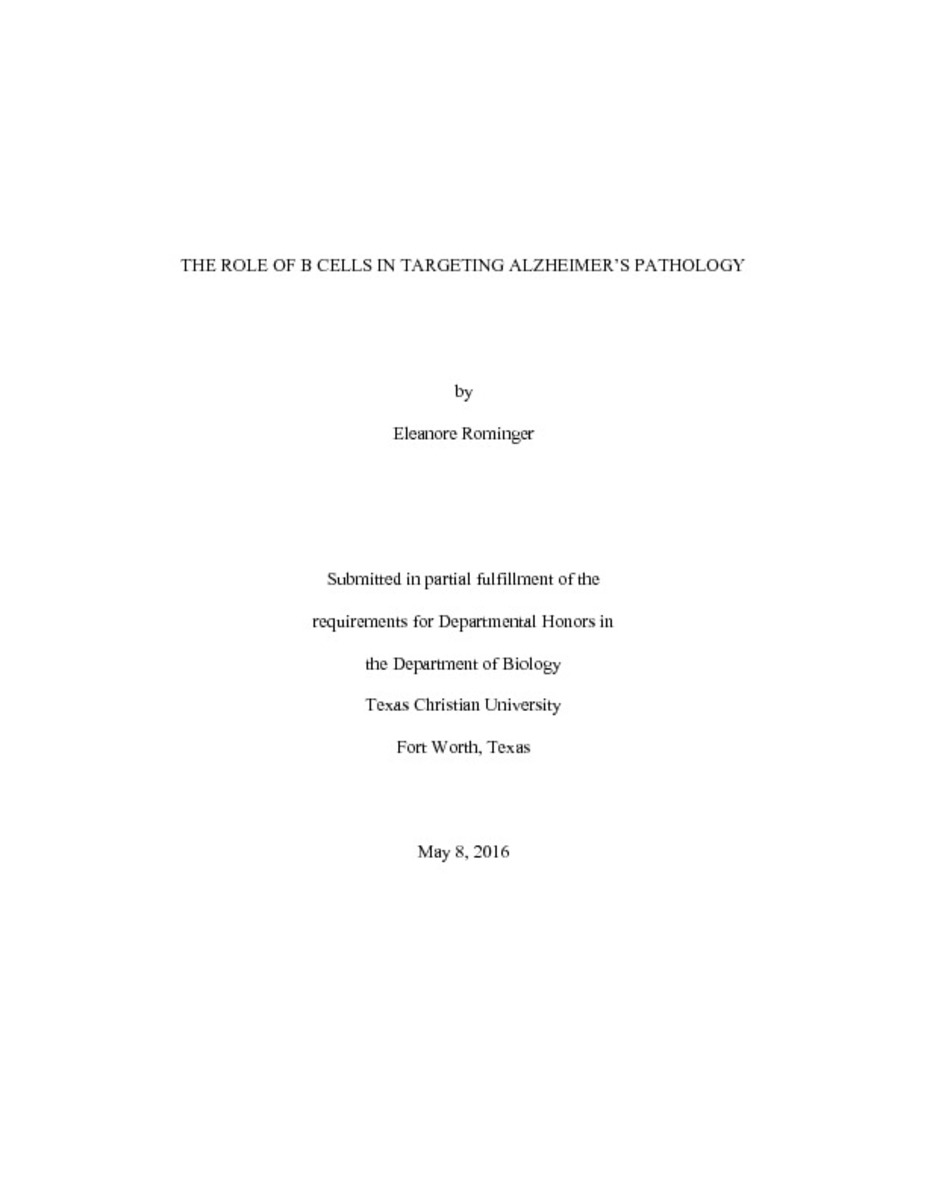The Role of B cells in Targeting Alzheimer's PathologyShow full item record
| Title | The Role of B cells in Targeting Alzheimer's Pathology |
|---|---|
| Author | Rominger, Eleanore |
| Date | 2017 |
| Abstract | Alzheimer's disease is the foremost type of dementia that causes deficits in memory, thinking, and behavior. Alzheimer's disease is the sixth leading cause of death in the United States, yet there is no known cure. Amyloid-beta (A-beta) is a peptide fragment that at normal levels of expression helps memory and learning by improving long-term potentiation (LTP). Too much A-beta will diminish LTP because A-beta will accumulate in synapses and block the signaling of neurotransmitters, thus leading to the deficits characteristic of Alzheimer's disease. Our lab has proven that acute inflammation leads to an increase in A-beta in the hippocampus of mice. A-beta levels in the hippocampus, however, do not increase or lead to more cognitive deficits if a second bout of LPS-induced inflammation is administered to mice while the A-beta levels from the first LPS injections are still significantly high. The objective of this study was to determine how mice were conferring resistance to this second bout of LPS. We investigated the antibodies produced after the second course of LPS in 5xFAD mice. We observed co-localization of IgG and IgM around the amyloid beta in the brain, suggesting these antibodies might specifically target amyloid beta. Furthermore, we wanted to investigate the source of these antibodies in the brain. We stained for CD19, a specific marker for B cells, in the hippocampus of 5xFAD mice. We found what we believe are B cells diffuse throughout the brain tissue. Therefore, B cells are crossing the BBB and releasing their products, IgG and IgM, at the site of inflammation. |
| Link | https://repository.tcu.edu/handle/116099117/19893 |
| Department | Biology |
| Advisor | Chumley, Michael |
| Additional Date(s) | 2017-05-19 |
Files in this item
This item appears in the following Collection(s)
- Undergraduate Honors Papers [1463]
© TCU Library 2015 | Contact Special Collections |
HTML Sitemap



